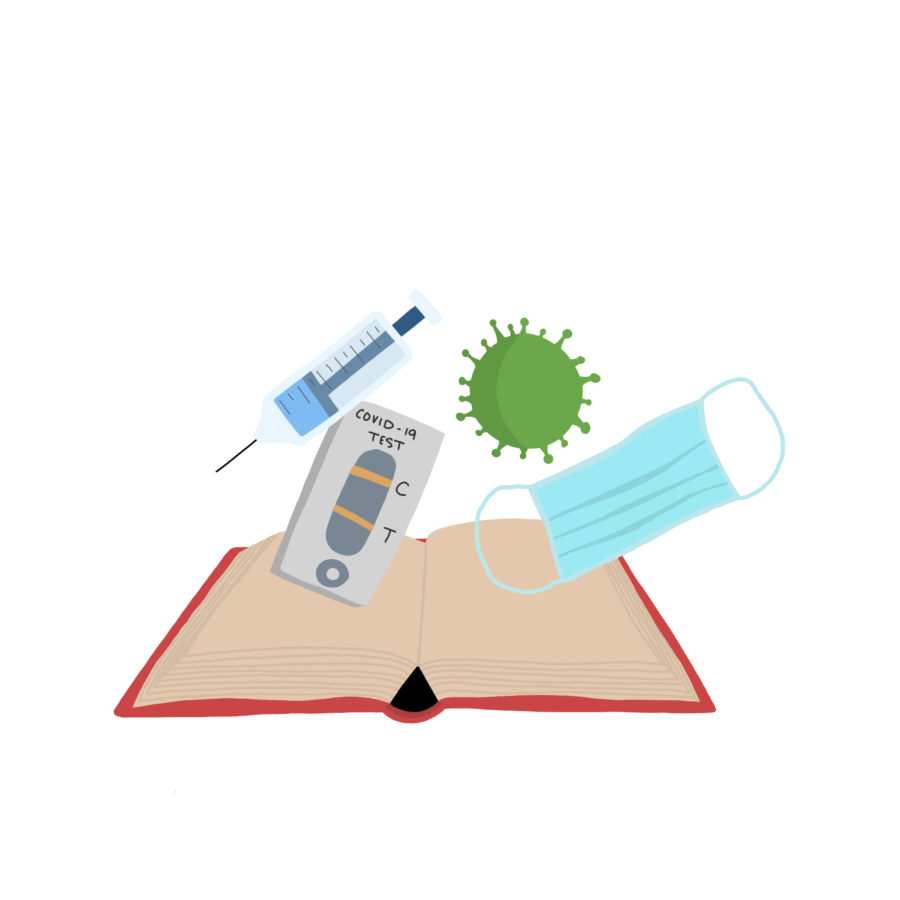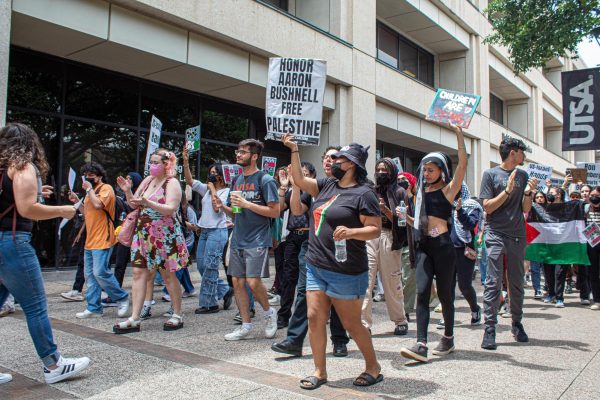UTSA Professor part of local health literacy initiative
February 15, 2022
Erica Sosa, Associate Dean for research and associate professor for public health at UTSA’s College for Health, Community and Policy, will lead a research team from UTSA in a project that aims to improve health literacy related to the pandemic.
The health literacy initiative is a collaboration between UTSA, San Antonio Metropolitan Health District and UT Health San Antonio.
Sosa explained that the initiative was developed due to the disproportionate effect of the pandemic on certain communities in Bexar County.
“As the COVID-19 pandemic has progressed, one thing that we’ve noticed is that certain communities are disproportionately burdened by the pandemic. We see higher positivity rates, lower vaccination rates, higher hospitalizations and death rates. And so, the purpose of this initiative is really to try to promote health literacy to mitigate the impacts of COVID-19 in those target areas,” Sosa said.
Sosa shared exactly what they plan to do in order to begin promoting health literacy.
“And so really what we’re focusing on is trying to address this information gap that is there, but also to address the misinformation that is there around COVID-19,” Sosa said. “So we’re hoping to equip people with scientifically accurate and culturally appropriate messaging that will allow them to get the health information they need to make the best decisions related to preventing COVID-19, which includes vaccinations, masking, physical distancing and … other strategies.”
The initiative started by identifying Bexar County zip codes where the pandemic has had a disproportionate effect on communities.
“The first thing we did was we identified which areas of Bexar County are disproportionately burdened by COVID-19. And so, we did look at the positivity rates and so forth to identify [differences]…but we also looked at social determinants of health — so which areas of [the] town have lower health literacy rates, which areas of [the] town have lower access to internet and some other limitations,” Sosa said.
At UTSA, the research team was tasked with identifying the aforementioned target zip codes for the project. The team at UTSA will also evaluate research data to see what methods work best to disseminate accurate information about the pandemic.
“The UTSA team … we did the initial scan for the health disparity impact statement, which was really identifying which zip codes we should target, which groups were most at need. And then we co-developed, with the medical school, the different strategies that would be used, the different groups that we want to target for the implementation, and then we’re doing the evaluation. So a lot of the data collection and the research to know which strategies are working, which ones aren’t, and why or why not,” Sosa said.
In addition to the plans, Sosa commented that there would be room for improvement should the current system not be up to standards.
“We’re also helping to develop the quality improvement plan. So if for some reason, something isn’t working, then we’ll help to create the system to make it more effective in the community,” Sosa said.
At UTSA, Sosa’s overall research focuses on public health issues and how they impact underserved communities.
“My research is primarily focused on community-based participatory research and community-engaged research. And so, I’m really interested in public health issues that impact minority and underserved populations and how we partner with communities to address those health issues. So my research really focuses on health equity and intervention work to try to increase health equity,” Sosa said.
These research interests, and observations of the burden of the pandemic on underserved communities, were one of the reasons Sosa decided to be a part of the project.
“Overall, just looking at underserved communities and some of our potential vulnerabilities, it’s really important during [the] pandemic. We see that we really need to step in and do something, but also, you know, I had been doing a lot with the contact tracing at UTSA. And just seeing the burden that the pandemic has on certain groups … especially groups that may be less likely to take steps to protect themselves and how that can put them at an increased risk for COVID-19, is just something that … I was passionate about trying to play a role in — helping people make better health decisions,” Sosa said.
Sosa also explained the importance of health literacy and how the lack of it has become even more pronounced over the course of the pandemic.
“Health literacy has been an ongoing issue for many of our underserved communities for a very long time. And I think that we see it really pronounced during the pandemic because there’s so much bad information and inaccurate information out there that we’re realizing if individuals aren’t able to get or to discern accurate from inaccurate information … that they’re really getting bombarded with these different messages that can impact their ability to keep themselves safe during the pandemic,” Sosa said.
While the initiative aims to increase health literacy in relation to COVID-19, Sosa hopes that it will further aid in the development of broader strategies that will address the lack of health literacy within other issues.
“The hope is that we’ll identify ways of communicating health information that is beneficial … and right now, it’s in the pandemic and it’s related to vaccinations and masking, but the hope would be that we find strategies that can work for other health issues and that we develop kind of these relationships that can be long lasting after we start focusing on something besides the pandemic,” Sosa said.












